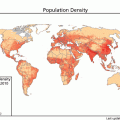Classification: ICD-9 046.1; ICD-10 A81.0
Synonyms: vCJD, mad cow disease, transmissible spongiform encephalopathy, prion disease.
Agent: The etiological agent of variant Creutzfeldt–Jakob Disease (vCJD) is thought to be an abnormal form of a naturally occurring host protein, which is transmissible and can transform normal host protein into the pathogenic form, known as ‘prions.’ vCJD refers specifically to the neurodegenerative prion disease of humans and is associated with Bovine Spongiform Encephalopathy (BSE), a prion disease of cows. vCJD is clinically and neuropathologically distinct from sporadic CJD, which is endemic throughout the world and has no known association with BSE.
Reservoir: Cattle with Bovine Spongiform Encephalopathy.
Transmission route: Thought to be acquired primarily through ingestion of infected tissue from cattle with BSE. Iatrogenic transmission has occurred through blood transfusion. To date there have been no known transmissions of vCJD by tissue or organ transplantation from infected people, or through contaminated surgical instruments.
Cycle: The protein concentrates in tissues of the central nervous system. Prions are resistant to normal cooking temperatures and humans are thought to be infected by ingesting contaminated food. In contrast to other forms of human prion diseases, in vCJD significant levels of infectivity are found in the lymphoreticular system (lymph nodes, spleen, tonsil, and appendix).
Stay updated, free articles. Join our Telegram channel

Full access? Get Clinical Tree




